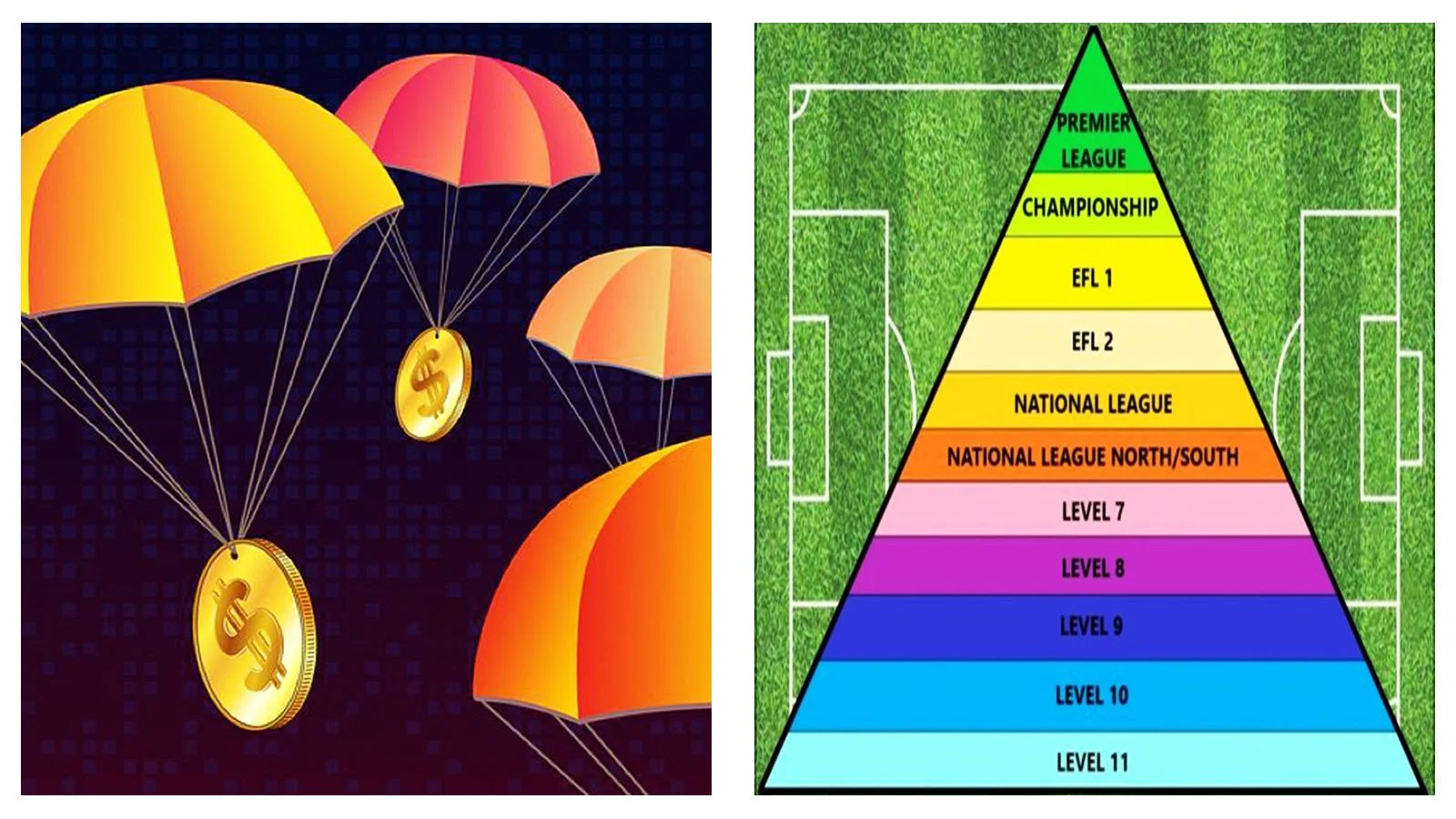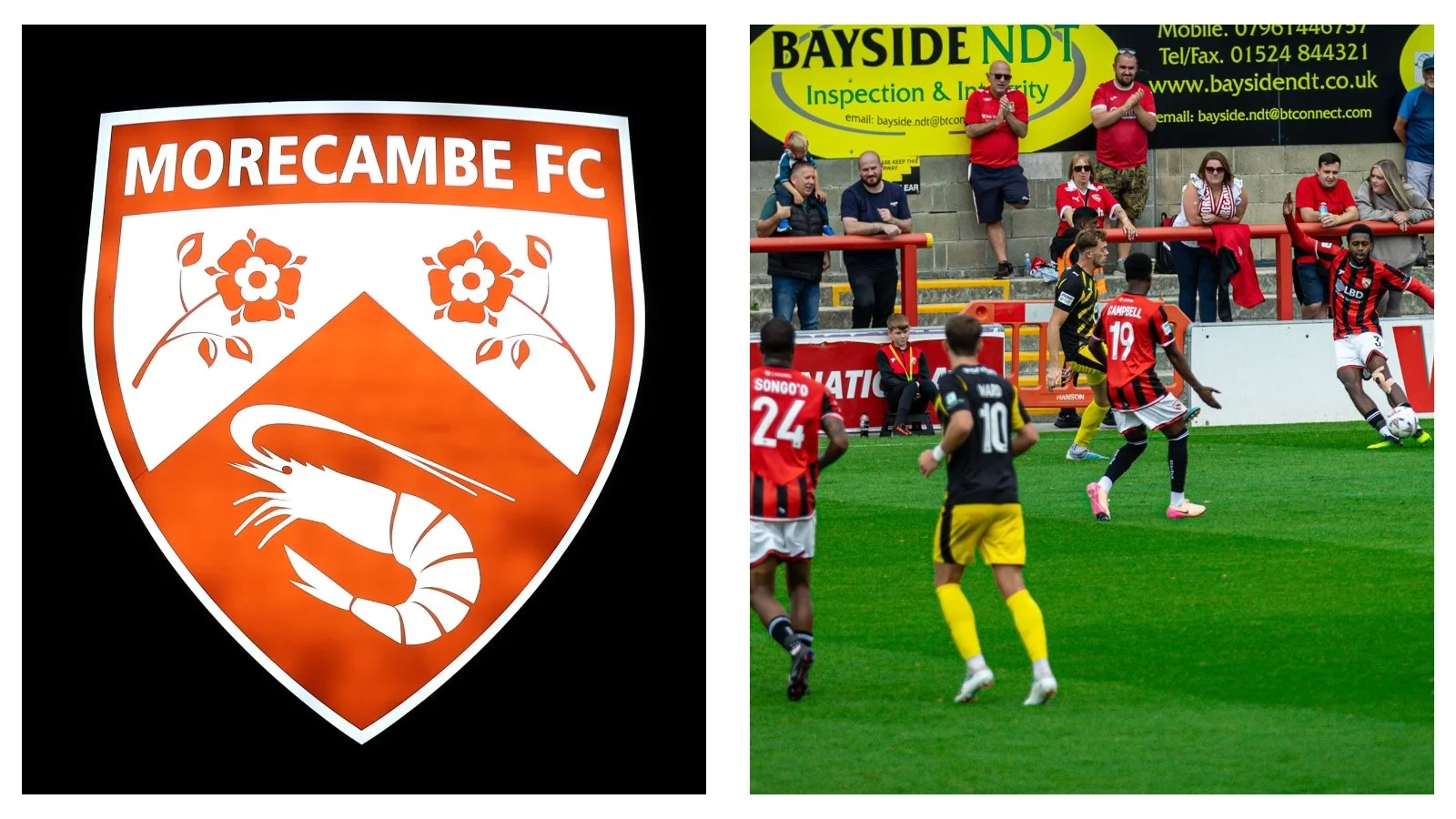Soccer news: Are parachute payments damaging the fabric of English football?
The English Football League system is often hailed as the most competitive and unpredictable football pyramid in the world.
From the glamour of the Premier League to the gritty charm of League Two, the promise of promotion and the peril of relegation create a dynamic narrative season after season.
Yet, in recent years, one feature of this structure has come under increased scrutiny: parachute payments.
Designed to cushion the financial blow of relegation from the Premier League, these payments have become one of the most controversial elements of English football finance.
Critics argue they are contributing to the demise of the EFL’s competitiveness, entrenching a “yo-yo club” culture where the same teams repeatedly bounce between the top-two tiers.
Proponents counter that, without them, relegated clubs would face financial oblivion. The question, then, is whether parachute payments are propping up the system or quietly undermining it.
Here, Sports News Blitz writer Ben Phillips looks at the positives and negatives of parachute payments in the English football league and looks at potential alternatives to the method.
What are parachute payments?
Parachute payments were introduced in the early 2000s to protect clubs relegated from the Premier League.
The financial chasm between England’s top-flight and the Championship is staggering.
Current broadcasting deals mean Premier League clubs can bank over £100million a season, while even the most successful Championship side struggles to generate more than a fraction of that.
Parachute payments are distributed over three seasons (reducing each year), offering relegated clubs’ financial stability while adjusting to life outside the top division.
In principle, they are designed to prevent clubs from falling into administration, defaulting on player wages, or being forced into fire sales of talent.
But over two decades later, the system is producing side effects that few anticipated.
YOU MAY ALSO LIKE: Ousmane Dembélé’s inspirational Ballon d’Or journey
The rise of the Yo-Yo club
If parachute payments were meant to stabilise relegated clubs, they have done so too well.
In recent years, the Championship has become defined by the presence of yo-yo club teams that fall from the Premier League, collect parachute payments, and then use that financial muscle to rebound quickly.
Sheffield United, Burnley, Norwich, and Southampton are among the most prominent examples.
Their dominance in the Championship is stark: bolstered by parachute payments, they can significantly outspend rivals on wages and transfer fees.
As a result, the second tier often feels less like an open competition and more like a holding pen for relegated clubs waiting to return to the Premier League.
The Premier League, too, is affected. Over the last two seasons, all three promoted clubs were relegated immediately: Sheffield United, Burnley, and Luton Town in 2023/24, followed by the three promoted clubs again in 2024/25.
The gulf is widening. Clubs arriving from the Championship, even those financially buoyed by parachute payments, often lack the resources and squad depth to compete against entrenched Premier League sides.
What was once the romance of promotion, the fairytale of smaller clubs rising to challenge the elite, is being replaced by the harsh reality of yo-yo football.
The positives of parachute payments
To dismiss parachute payments outright, however, is to overlook their crucial benefits. Football is a business as much as a sport, and the risks associated with relegation are severe.
Key positives:
Financial Stability: Without parachute payments, relegated clubs would be at risk of financial collapse. Many Premier League sides operate with huge wage bills and long-term contracts that are difficult to reduce overnight. The payments allow them to avoid administration and keep the club afloat.
Player Retention: Clubs dropping into the Championship can retain higher-quality players for longer. This, in theory, increases the standard of football in the EFL and gives those clubs a better chance of returning.
Reducing Volatility: For clubs with long-term plans, parachute money provides a cushion to maintain infrastructure, academies, and community programmes that might otherwise face cuts.
Encouraging Ambition: Smaller clubs aspiring to reach the Premier League know that, even if relegated, parachute payments provide a financial safety net. In this way, the system incentivises ambitious ownership groups to push for promotion.
In short, parachute payments prevent English football from being littered with the wreckage of clubs that flew too close to the Premier League sun.
READ MORE: How Morecambe bounced from the brink to become the National League’s entertainers
The negatives: Competitive imbalance and the erosion of the pyramid
Despite their intended benefits, the downsides of parachute payments are becoming increasingly difficult to ignore, which include:
Championship Distortion: Clubs receiving parachute payments enjoy a financial advantage that most EFL sides cannot match. Wages are higher, transfer budgets are bigger, and the margin for error is wider. This creates a two-tier Championship where parachute clubs dominate, and others struggle to keep pace.
Entrenching Yo-Yo Clubs: The system rewards clubs for failure. Relegated teams retain financial clout that allows them to rebound, while promoted sides, despite their achievements, find themselves underfunded in the Premier League. The result is the same clubs going up and down in a repetitive cycle.
Marginalising Non-Parachute Clubs: For ambitious Championship clubs without parachute money, think Preston, Millwall, or Coventry, the dream of promotion is harder to realise. To compete, they are forced to overspend, leading to financial risks that can cripple clubs if promotion is not achieved.
The Premier League Glass Ceiling: Even when parachute clubs return to the Premier League, they often struggle to compete. The payments help them dominate the Championship but rarely equip them to challenge established top-flight sides. This exacerbates the gap between the Premier League elite and the rest.
The two-season relegation curse
The recent trend of promoted clubs being immediately relegated highlights the deeper problem: parachute payments may secure financial safety, but they do not bridge the competitive gulf.
Luton Town’s survival push in 2023/24 offered a brief glimmer of hope, but even they succumbed.
The Premier League is a different world, faster, richer, more ruthless.
For promoted sides, the challenge isn’t just assembling a competitive squad; it’s doing so without jeopardising the club’s long-term future.
Many promoted teams adopt cautious spending strategies, wary of becoming the next Derby County or Sunderland, clubs that overspent in pursuit of survival and paid the price with financial collapse.
Yet by being cautious, they virtually accept relegation as inevitable.
The cycle continues: promoted clubs return to the Championship, parachute payments kick in, and the yo-yo spins once more.
YOU MAY BE INTERESTED IN: Start-up company raises $10m to support padel growth in the US
Are there alternatives?
Reforming parachute payments has been a long-debated topic in English football. Several ideas have been floated:
A Centralised Solidarity Fund: Instead of parachute payments, redistribute television revenue more evenly across the top two tiers. This would reduce the financial shock of relegation while avoiding distortions in the Championship.
Performance-Based Payments: Tie parachute money to financial management, squad development, or academy investment rather than simply handing club’s cash. This would encourage sustainable planning.
Salary Controls: Introduce tighter wage controls in the Premier League to reduce the financial cliff between divisions.
Gradual Phase-Out: Limit parachute payments to one or two seasons, forcing relegated clubs to adjust more quickly while still offering some protection.
Each alternative has flaws, but the conversation reflects the growing consensus that the current system is unsustainable.
The verdict: Safety net or stranglehold?
Parachute payments were introduced with noble intentions, but their impact on the English football pyramid is increasingly problematic.
They have become a safety net for relegated clubs while acting as a stranglehold on competitive balance in the Championship.
The dominance of yo-yo clubs and the immediate relegation of promoted sides suggest a system that is broken.
For supporters, the dream of promotion is becoming hollow; for neutrals, the romance of unpredictability is being eroded.
Yet scrapping parachute payments entirely risks chaos.
The financial collapse of multiple clubs would do more damage to English football than the distortions we see today.
The challenge, then, is reform: finding a middle ground that protects clubs from ruin while restoring competitive fairness.
Until then, the pyramid will continue to wobble.
Parachute payments may not yet have brought about the demise of the English football league system, but they are certainly tilting its balance, and unless change comes soon, the fabric of the game may fray beyond repair.
READ NEXT: NFL betting tips: Ravens to bounce back, New Orleans Saints' unsalvageable season




